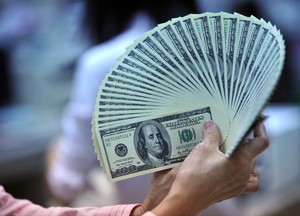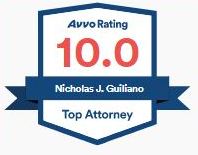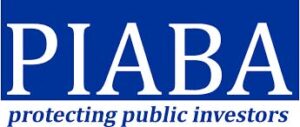Can I Recover More Than My Investment Losses?
Damages are typically measured by net “out-of-pocket losses,” i.e. what you put in or invested, less what you took out or withdrew, minus what is left over. Using this methodology, for example, an investor purchases or invests $100 in a ten year bond, which yield 10% annual interest. Each year for a period of ten years, the investor receives their $10 interest check. However, at the end of the tenth year, the investor wakes up to find that their $100 bond, which is supposed to be redeemed after ten years, is completely worthless.
 The investor will believe that he or she suffered a $100 loss. Defense counsel will maintain, as may be appropriate, that the investor has no losses. The investor gave us $100, and we gave the investor the $100 back.
The investor will believe that he or she suffered a $100 loss. Defense counsel will maintain, as may be appropriate, that the investor has no losses. The investor gave us $100, and we gave the investor the $100 back.
This concept of “netting” has been routinely rejected by the Courts. For example, in Kane v. Shearson, 916 F.2d 643, 646 (11th Cir. 1990), the Appeals Court affirmed the trial court’s reversal of an arbitration decision that offset the claimants’ losses by his gains from the same stock. The Court concluded that “[t]here is no indication that other transactions are relevant to this calculation at all.” The Court further observed the perverse incentives of such a “netting” theory:
[T]here is no support to be found under federal or [sic] state law for the “netting” theory Shearson argues for here. . . . As the district judge noted, “If the . . . methodology espoused by [Shearson] were adopted, it could serve as a license for broker-dealers to defraud their customers with impunity up to the point where losses equaled prior gains. 916 F.2d at 643
Similarly, in Randall v. Loftsgarden, 106 S.Ct. 3143, 3153 (1986), the United States Supreme Court rejected a netting analysis based on the deterrent purpose of the securities laws: “This deterrent purpose is ill-served by a too rigid insistence on limiting plaintiffs to recovery of their ‘net economic loss.’” In Nesbit v. McNeil, 896 F.2d 380, 385, 386 (9th Cir. 1990), another suitability case, the Appeals Court affirmed the trial court’s rejection of the netting argument, stating that “there is no reason to find that [plaintiffs] should be denied a recovery because their portfolio increased in value, either because of or in spite of the activities of the defendants,” and that “gains in portfolio will not offset losses . . . .”
Again, in Davis v. Merrill Lynch, 906 F.2d 1206, 1218 (8th Cir. 1990), the federal appeals court, interpreting both state common law and federal statutory claims, rejected the netting argument:
We disagree with Merrill Lynch’s argument that no actual damages were sustained . . . . The implications of this argument are disturbing. If we were to adopt Merrill Lynch’s view, securities brokers would be free to churn their customers’ accounts with impunity so long as the net value of the account did not fall below the amount originally invested. 906 F.2d at 1218 (emphasis added); See also Levine v. Futransky, 636 F.Supp. 899, 900 (N.D. Ill. 1986)(the court similarly rejected a “netting” defense, stating that “this Court holds that plaintiffs suffered damages even though the investment portfolios incurred a net gain.”).
What if using the same hypothetical, interest rates were only 5% over this ten year period. But our investor received 10 percent interest. Did the investor also then lose $100, or was the investor compensated for taking the higher risk, including the risk that after 10 years, the particular bond may be worthless.
The Well Managed Portfolio Theory
The answer may be found through the application of the “well managed portfolio” theory, which applies, as the name suggests, to both bonds and stocks, or really any investment.
So, here, let us say there are two bonds and two investors. Investor A is sold a a safe, conservative bond which yields 5%, which has a low rate of default. Investor B, contrary to his stated intolerance for risk, is sold a very risky junk bond, or collateralized mortgage obligation that pay 10%, but has a very high rate of default. At the end of ten years, Investors A in the low risk bond in addition to getting a total of $50 in interest, gets back $100, for a total of $150. However, Investor B, the investor sold the high risk bonds, gets $100 in interest, but at the end of ten years discovers the risky bonds to be worthless.
 At the end of the day, Investor B has $50 less than Investor A. Accordingly in an action by the defrauded Investor B, who wanted the low risk bonds but of course was sold the high risk bonds, his damages are $50. Moreover, even if Investor B has no net “out of pocket damages,” over this same period, had Investor B’s $100 been appropriately invested, at 5%, he would have had an additional $50.
At the end of the day, Investor B has $50 less than Investor A. Accordingly in an action by the defrauded Investor B, who wanted the low risk bonds but of course was sold the high risk bonds, his damages are $50. Moreover, even if Investor B has no net “out of pocket damages,” over this same period, had Investor B’s $100 been appropriately invested, at 5%, he would have had an additional $50.
The same concept applies to stocks, or stocks and bonds, or to any portfolio. A portfolio that loses 40% or $40 when the stock market, as measured by the S&P 500, is down 20% can be said to have only lost $20, because had then been “appropriately” invested in the S&P 500, they would have lost $20 or 20% anyway.
The question always is what is “appropriately invested.” Do we measure losses against bond indices, if so which ones, stock indices, if so which ones, or a weighted index of stock and bonds. Is it appropriate to say to an investor that should have never been in the stock market, that had they been in the stock market, they would have lost X% anyway? Of course not.
However the concept is that investors are entitled to market adjusted or “well managed portfolio damages,” meaning that actual net “out-of-pocket damages” should be adjusted to reflect what the investor made, or arguably would have lost, had they been “appropriately” invested.
Courts agree. See e.g. Miley v. Oppenheimer & Company, 637 F.2d 318 (5th Cir., 1981); Dasler v. E.F. Hutton, 694 F. Supp. 624 (6th Cir. 1998); Medical Associates v. Advest, Inc., 1989 Lexis 11253 (W.D.N.Y. 1989); Hatrock v. Edward D. Jones & Co., 750 F.2d 767, 773-74 (9th Cir. 1984); In re. Drexel Burnham Lambert Group, Inc., 161 B.R. 902 (S.D.N.Y. 1993); Rolf v. Blyth Eastman Dillon & Co., 570 F.2d 38, 49 (2d Cir.), cert. denied, 439 U.S. 1039 (1978), modified, 637 F.2d 77 (2d Cir. 1980).
As the Court stated in Medical Associates stated: “The proper method of calculating damages is to take the initial value of plaintiff’s portfolio, adjust it by a percentage change in an appropriate index, during the relevant period, and subtract the value of the portfolio at the end of the period.” As such, “the market index is designed to separate the plaintiff’s losses that were due to the fraud from the losses that were due to general market conditions.”
For example, the court in Medical Associates stated: “The proper method of calculating damages is to take the initial value of plaintiff’s portfolio, adjust it by a percentage change in an appropriate index, during the relevant period, and subtract the value of the portfolio at the end of the period.” As such, “the market index is designed to separate the plaintiff’s losses that were due to the fraud from the losses that were due to general market conditions.”
 Likewise, the Hatrock court stated: “the investor may recover (1) excessive commissions charged by the broker, and (2) the decline in value of the investor’s portfolio resulting from the broker’s fraudulent transactions. The recoverable decline in portfolio value is the difference between what [the claimant] would have had if the account ha[d] been handled legitimately and what he in fact had at the time the violation ended” (internal citations omitted).
Likewise, the Hatrock court stated: “the investor may recover (1) excessive commissions charged by the broker, and (2) the decline in value of the investor’s portfolio resulting from the broker’s fraudulent transactions. The recoverable decline in portfolio value is the difference between what [the claimant] would have had if the account ha[d] been handled legitimately and what he in fact had at the time the violation ended” (internal citations omitted).
Similarly, in Levine v. E.F. Hutton &Co., 636 F. Supp. 899, 900 (N.D. Ill. 1986) allowed plaintiffs to recover “the difference between the losses incurred on the sale of the greater amount plaintiffs would have received had they not been defrauded and the more conservative securities had been bought and sold” (quoting Affiliated Ute Citizens v. United States, 406 US 128, 155 (1972) (holding that plaintiff should be awarded the difference between the “fair market value of all [he] received and the fair value of what he would have received had there been no fraudulent conduct”).
Similarly, in Rolf, the Second Circuit held that the following steps should be taken to compute damages: 1) compute the market value of the plaintiff’s portfolio when the fraud began; 2) adjust this amount by the average percentage increase or decrease of the value of the Dow Jones Industrial Average, the Standard & Poor’s Index, or any other well recognized index of value, or combination of indices, of the national securities markets during the period of the fraud; and 3) subtract from the resulting figure the market value of the portfolio when the fraud ended.
Guiliano Law Group
Our practice is limited to the representation of investors. We accept representation on a contingent fee basis, meaning there is no cost to you unless we make a recovery for you. There is never any charge for a consultation or an evaluation of your claim. For more information, contact us at (877) SEC-ATTY.




OUR PRACTICE AREAS
FINRA Arbitration
The litigation of individual and group investor claims against securities broker-dealers and investment professionals adjuducated in arbitration before the Financial Industry Regulatory Authority.
Defective Financial Products
Alternative Investments, Promissory Notes, Structured Products, High Yield Bond Funds, Non-Marketable Real Estate Investment Trusts, Inverse and Leveraged ETFs, the Failure to Conduct Due Diligence.
Unsuitable Investments
Speculative or High Risk Investment Recommendations, Unsuitable Investment Strategies, Low Priced Securities, Customer Specific Unsuitability, Inappropriate Investment Recommendations.
Stockbroker Misconduct
Breach of Fiduciary Duty, Churing, Unauthorized Trading, Fraud, Stockbroker Theft, Ponzi Schemes, the Sale of Unapprovied investments.

